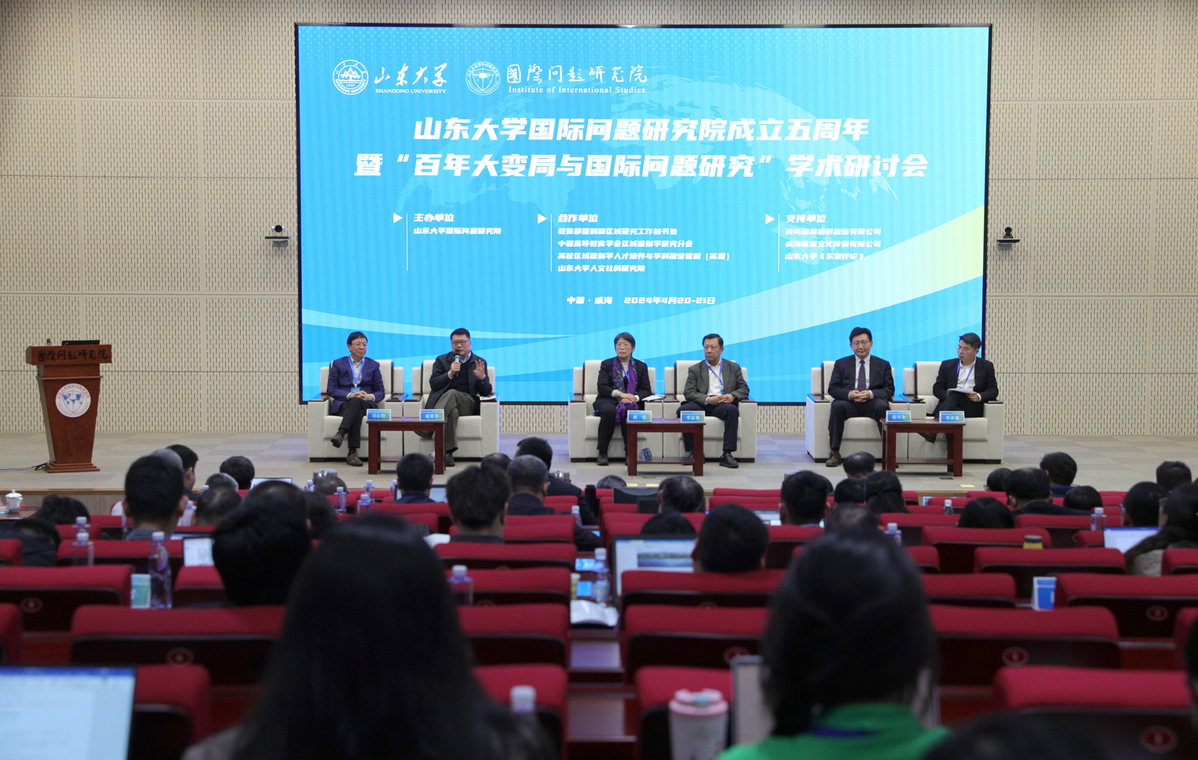Regional studies needed to?better?support national strategies


Regional studies are crucial for effectively supporting national strategies, according to experts who convened on Saturday. They emphasized the urgent need for a proficient talent pool in this field to cater to the evolving global landscape.
Huang Renwei, executive vice-president of the Fudan Institute of Belt and Road & Global Governance, highlighted the significance of regional studies, particularly focusing on specific countries or regions, to assist China in navigating its foreign relations amidst unprecedented global transformations.
Speaking at a seminar titled "Profound Changes and International Studies" in Weihai, Shandong province, Huang stressed the necessity for universities and research institutions to cultivate down-to-earth talents through concrete projects and delve into specific fields within countries and regions involved in the Belt and Road Initiative. The seminar was organized by the Institute of International Studies at Shandong University to celebrate its fifth anniversary.
"It is essential to conduct in-depth research, covering various aspects such as economic development, historical and cultural backgrounds, social structures, diplomatic policies, ecological environments, customs, and traditions,"he added.
Academics should contribute to the mission of building a community with a shared future for mankind. Experts at the event agreed that there is currently a shortage of knowledge and experience in regional studies, which also offers unprecedented opportunities for talent development in this field.
Ni Feng, director of the Institute of American Studies at the Chinese Academy of Social Sciences, said that a key issue is to expand a well-structured research team of considerable size.
Using his research experience on China-US relations as an example, Ni stressed that capacity building is key to serving national strategies. "In order to conduct thorough and effective research on American studies, it is necessary to expand the research teams, which are currently understaffed."
In a parallel discussion, nearly a hundred experts and scholars from various domestic universities and research institutions discussed on country and area studies as well as international studies.
Qin Yaqing, chair professor at Shandong University, said that global governance is in a crisis, facing a resurgence of great power politics.
Research data has shown a decrease in attention to global governance, while analysis indicates a trend of international relations returning to realist power politics and Cold-War mentality, he said.
Qin stressed the importance of international organizations in addressing global challenges and emphasized China's commitment to cooperation, which opens up possibilities for global governance.
"Even amid escalating suspicion and competition between the US and China, the two countries have still engaged in significant cooperation through international organizations, for example, climate change," he said.
As domestic and foreign policies are intertwined and affect each other, the diplomacy of each country is quite different," said Zhao Kejin, professor and deputy dean of the School of Social Sciences of Tsinghua University. "Still, countries should find ways to coordinate."
- Medical insurance fund records slight surplus in 2024
- Reception held in Macao to welcome Chinese New Year
- China launches Pakistani satellite, two others
- Former deputy head of China Tobacco under investigation
- An Italian calling Shanghai home
- Education Ministry approves 12 new higher education institutions




































